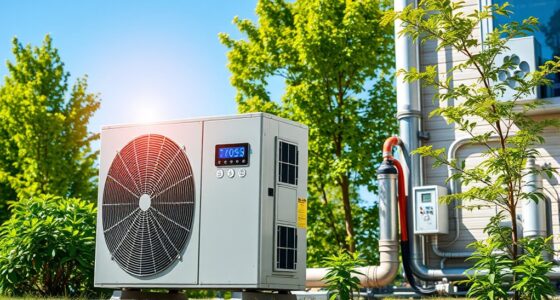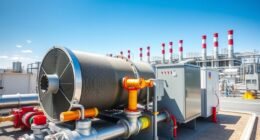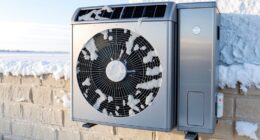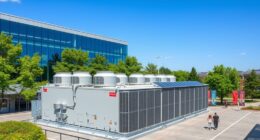Tired of traditional heating and cooling systems that leave your home either too hot or too cold? Look no further! We are excited to introduce the revolutionary technology that will change the way you experience comfort in your home: heat pump HVAC systems.
These innovative systems use advanced technology to provide efficient heating and cooling, all year round. Say goodbye to high energy bills and hello to ultimate comfort.
Join us as we dive into the world of heat pump HVAC systems and discover how they can transform your home.
Key Takeaways
- Heat pump HVAC systems provide remarkable energy savings.
- They offer year-round comfort and are efficient and cost-effective.
- Heat pump HVAC systems reduce environmental impact.
- They provide both heating and cooling capabilities in one system.
Benefits of Heat Pump HVAC Systems
Let’s explore the benefits of heat pump HVAC systems and see how they can revolutionize our home comfort.

Heat pump HVAC systems offer remarkable energy savings and provide year-round comfort for homeowners. These systems work by transferring heat from one area to another, rather than generating heat or cool air. This process makes them highly efficient and cost-effective for both heating and cooling needs.
By utilizing the ambient air or ground as a heat source, heat pumps require less energy consumption compared to traditional HVAC systems. This results in significant savings on energy bills and reduces the environmental impact.
Additionally, heat pumps have the ability to provide both heating and cooling capabilities, ensuring a comfortable indoor environment throughout the year.
With the combination of energy savings and year-round comfort, heat pump HVAC systems are a game-changer for our homes.
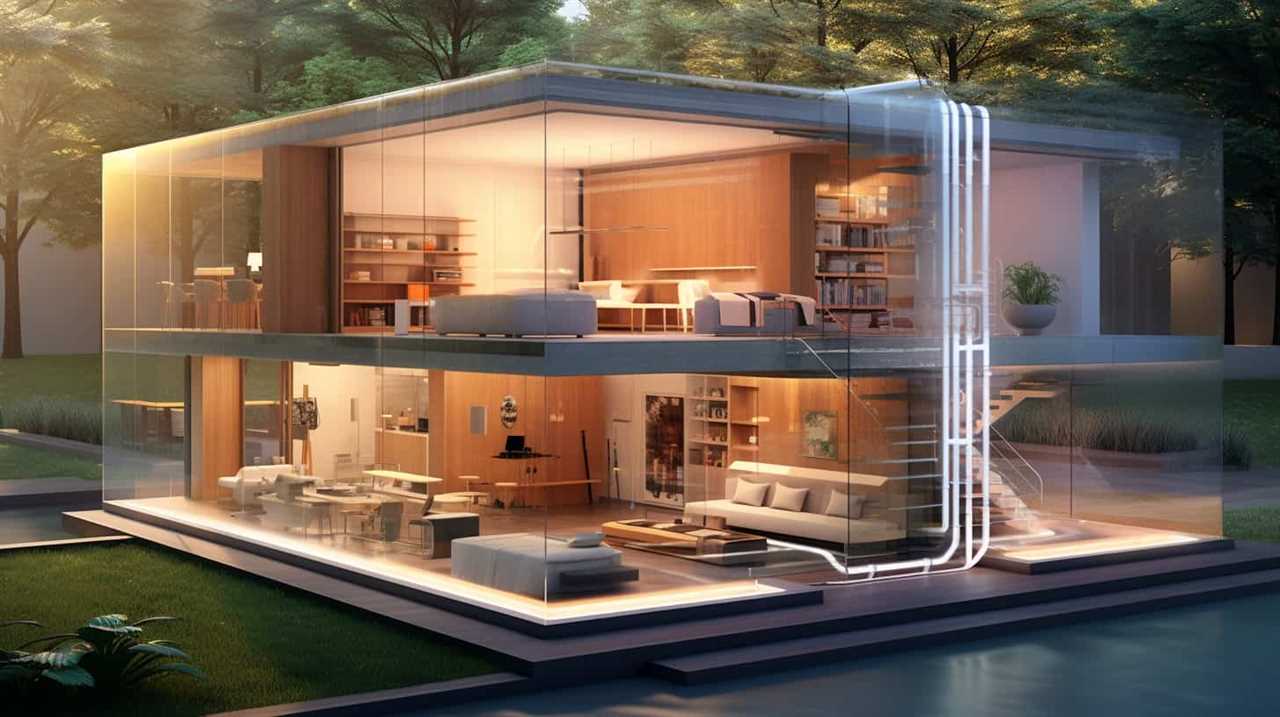
How Heat Pump HVAC Systems Work
We’ll now delve into how heat pump HVAC systems work to revolutionize our home comfort. Heat pump technology is based on the principle of heat transfer, which involves moving heat from one place to another.
Here is a breakdown of the heat transfer process in a heat pump HVAC system:
Evaporation: The heat pump extracts heat from the air or ground using a refrigerant that evaporates at a low temperature.
Compression: The evaporated refrigerant is then compressed, which increases its temperature and pressure.
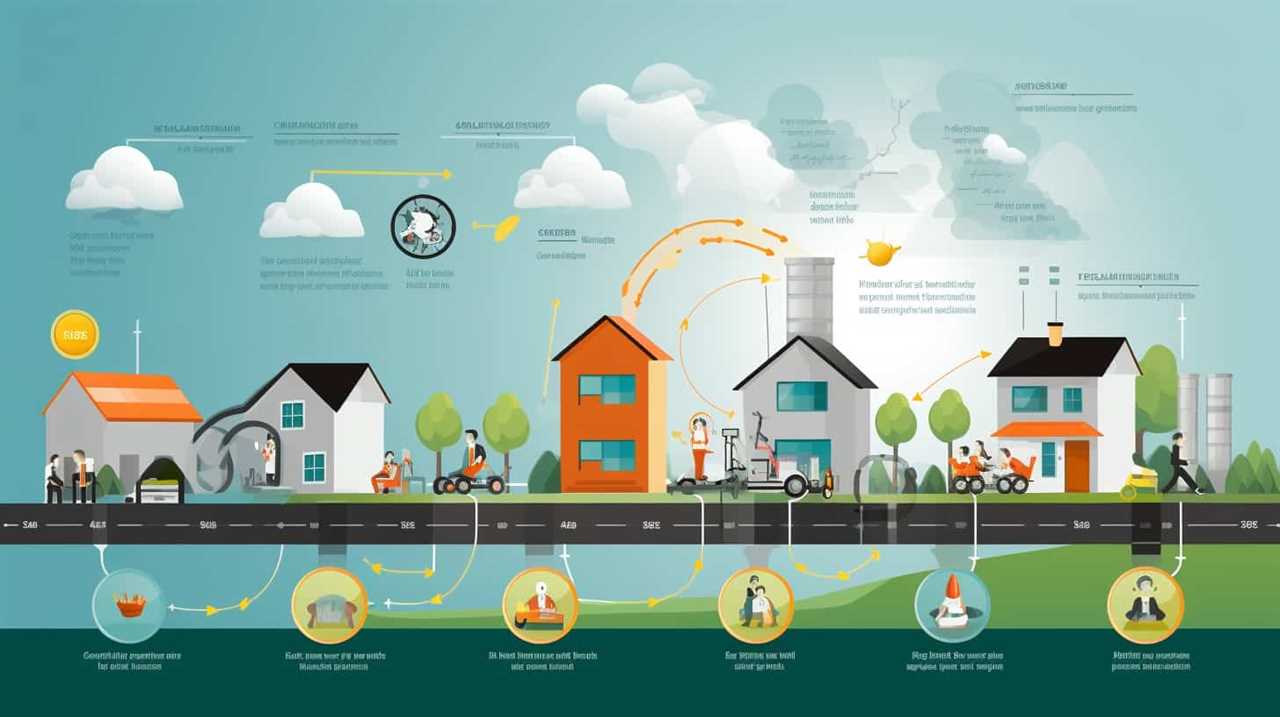
Condensation: The hot, high-pressure refrigerant releases heat as it condenses back into a liquid state, transferring it to the indoor air or water.
Expansion: The refrigerant is then expanded, reducing its temperature and pressure, ready for another cycle.
Types of Heat Pump HVAC Systems
The different types of heat pump HVAC systems provide various options for improving our home comfort. When it comes to heat pump installation, there are three main types to consider: air source heat pumps, ground source heat pumps, and water source heat pumps.
Air source heat pumps extract heat from the outside air and use it to warm our homes during the winter. They can also be reversed to provide cooling during the summer.
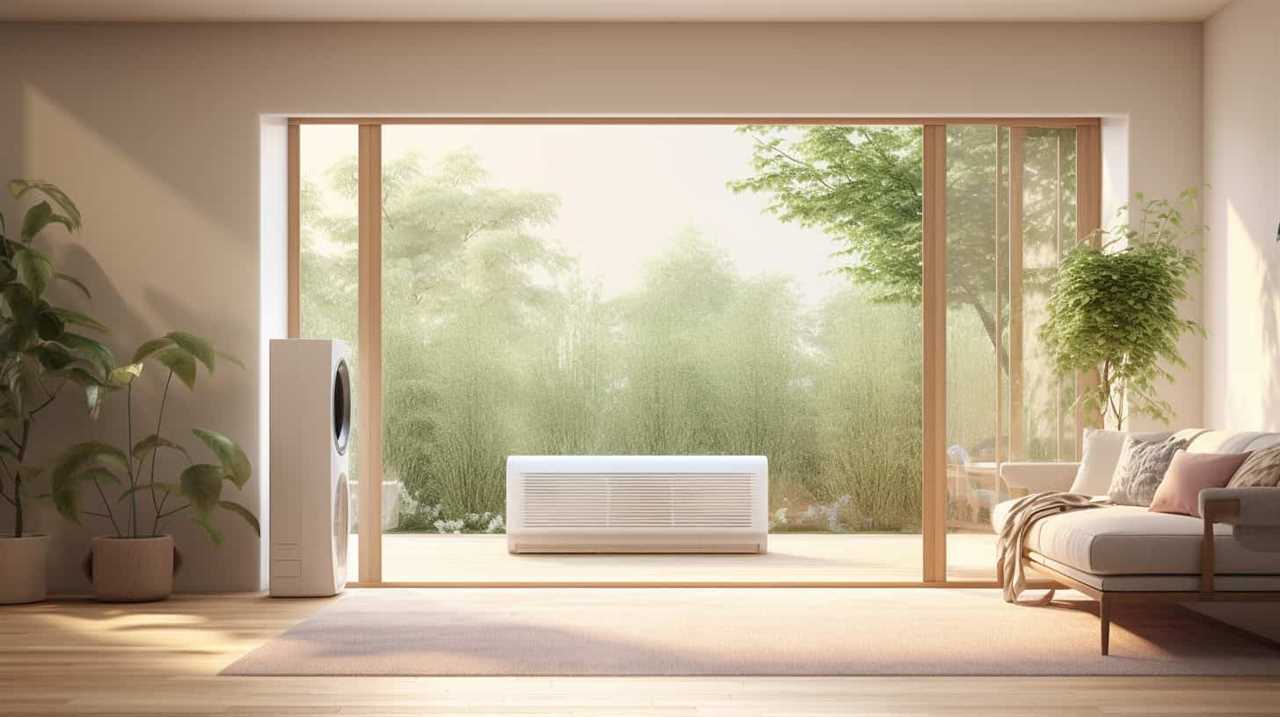
Ground source heat pumps, on the other hand, use the stable temperature of the ground to heat or cool our homes. They’re more energy-efficient but require more extensive installation.
Lastly, water source heat pumps extract heat from a nearby water source, such as a lake or pond.
Regardless of the type of heat pump HVAC system, it’s important to understand that troubleshooting may be necessary from time to time. It’s recommended to consult with a professional technician who can diagnose and resolve any issues that may arise.
Energy Efficiency of Heat Pump HVAC Systems
When it comes to energy efficiency, heat pump HVAC systems offer significant savings on our home’s heating and cooling costs. These systems utilize heat pump technology, which allows them to transfer heat rather than generate it, resulting in lower energy consumption.
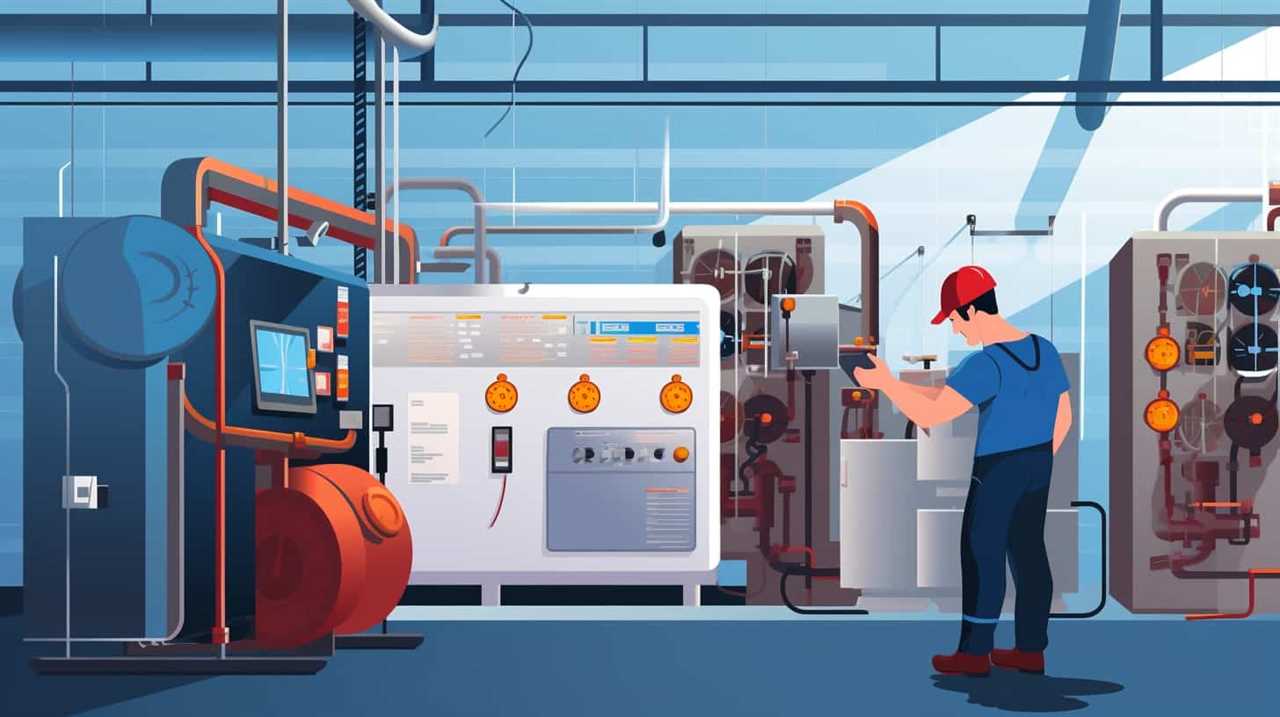
Here are four reasons why heat pump HVAC systems are highly energy efficient:
Reversible operation: Heat pump systems can both heat and cool our homes, eliminating the need for separate heating and cooling systems and reducing energy consumption.
Heat exchange: Heat pumps extract heat from the air or ground and transfer it to our homes, using minimal electricity in the process.
Efficient compressor technology: Heat pump HVAC systems use advanced compressor technology that maximizes efficiency, reducing energy consumption and operating costs.
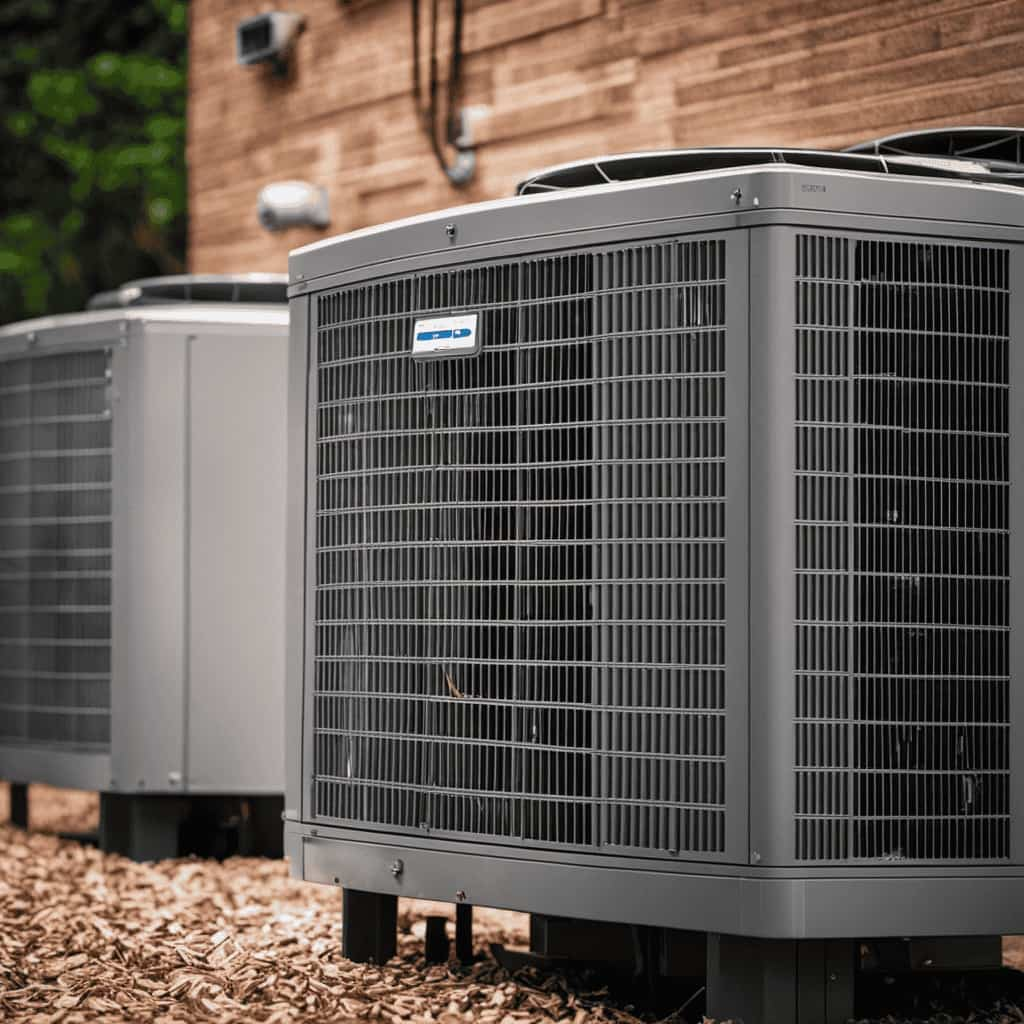
Variable speed motors: These systems are equipped with variable speed motors that adjust the airflow according to our home’s needs, ensuring optimal energy efficiency.
Cost Savings With Heat Pump HVAC Systems
One of the key benefits of heat pump HVAC systems is that they offer significant cost savings on our home’s heating and cooling expenses. These systems are highly energy-efficient, resulting in lower energy consumption and reduced utility bills.
Heat pumps work by transferring heat from one area to another, rather than generating heat themselves, which makes them much more efficient than traditional heating and cooling systems. By using the outside air as a heat source during the winter and as a heat sink during the summer, heat pumps can provide comfortable indoor temperatures while consuming less energy.
This leads to long-term savings for homeowners, as they can expect lower monthly energy bills and reduced overall heating and cooling costs. Investing in a heat pump HVAC system is a smart financial decision that pays off in the form of energy savings and increased home comfort.
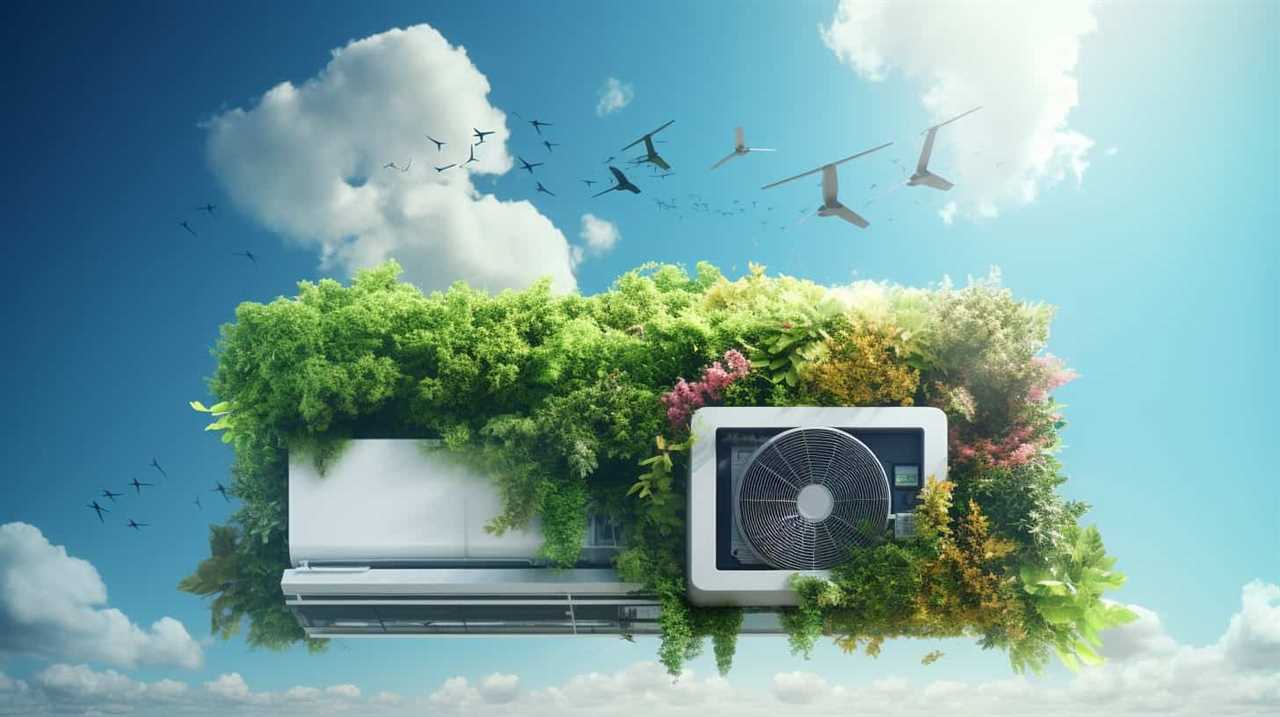
Environmental Impact of Heat Pump HVAC Systems
Reducing carbon emissions and promoting sustainability, heat pump HVAC systems offer an environmentally friendly solution for heating and cooling our homes. These systems have a significantly lower carbon footprint compared to traditional heating and cooling methods.
Here’s how heat pump HVAC systems contribute to a greener future:
Reduced energy consumption: Heat pumps are highly efficient in transferring heat from one place to another, consuming less energy than conventional heating and cooling systems.
Utilization of renewable energy: Heat pumps can be powered by renewable energy sources such as solar or geothermal energy, further reducing their environmental impact.
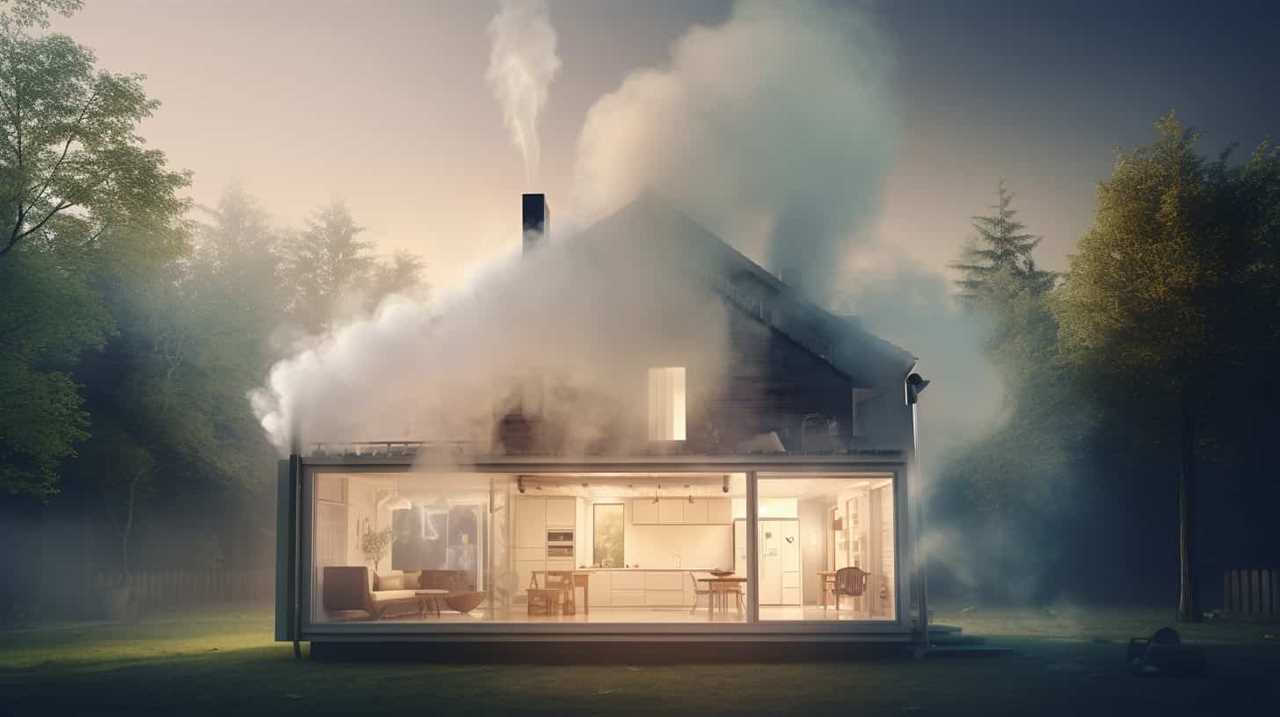
Lower carbon emissions: By relying on electricity instead of burning fossil fuels, heat pump HVAC systems produce fewer greenhouse gas emissions.
Efficient year-round operation: Heat pumps can both heat and cool homes, eliminating the need for separate heating and cooling systems and reducing overall energy consumption.
With their low energy consumption and reduced carbon footprint, heat pump HVAC systems are a sustainable choice for environmentally conscious homeowners.
Improved Indoor Air Quality With Heat Pump HVAC Systems
Our heat pump HVAC systems not only provide efficient heating and cooling, but they also improve indoor air quality. With advanced filtration systems and the ability to remove pollutants and allergens from the air, our heat pump HVAC systems ensure that you and your family breathe clean and healthy air inside your home.
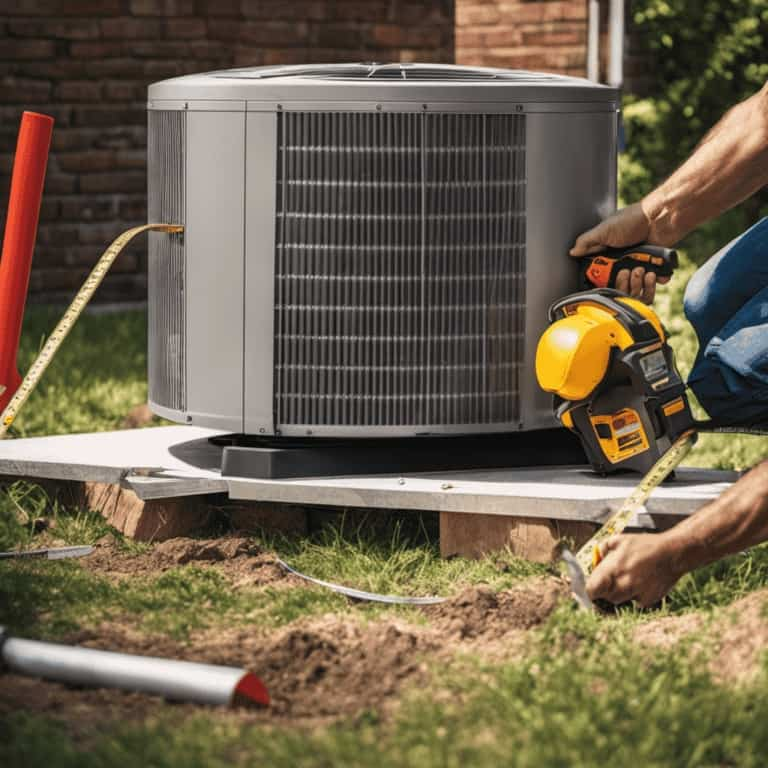
These systems use high-efficiency filters to capture dust, pollen, pet dander, and other airborne particles, reducing the risk of respiratory issues and allergies. By continuously circulating and filtering the air, heat pump HVAC systems help maintain a fresh and clean indoor environment.
This improved indoor air quality not only contributes to your overall comfort but also promotes better health and well-being.
Additionally, the enhanced energy efficiency of our heat pump HVAC systems leads to long-term cost savings, as they consume less energy compared to traditional HVAC systems.
Maintenance Tips for Heat Pump HVAC Systems
Ensuring regular maintenance is crucial for maintaining the optimal performance of heat pump HVAC systems. Proper maintenance not only extends the lifespan of the system but also helps in maximizing its energy efficiency. Here are some important maintenance tips to keep your heat pump running smoothly:

Follow a heat pump maintenance schedule: Regularly inspect and clean the air filters, coils, and fins to prevent any blockages or buildup of dirt and debris. This will ensure proper airflow and efficient operation.
Check the thermostat settings: Make sure the thermostat is calibrated correctly and set at the desired temperature. Incorrect settings can lead to unnecessary energy consumption and comfort issues.
Troubleshooting heat pump issues: Familiarize yourself with common heat pump problems such as insufficient heating or cooling, unusual noises, or poor airflow. Regularly check for these issues and address them promptly to avoid further damage.
Professional maintenance: Schedule regular maintenance visits with a qualified HVAC technician to perform a thorough inspection and tune-up of your heat pump system. They can identify potential issues and make necessary repairs or adjustments.
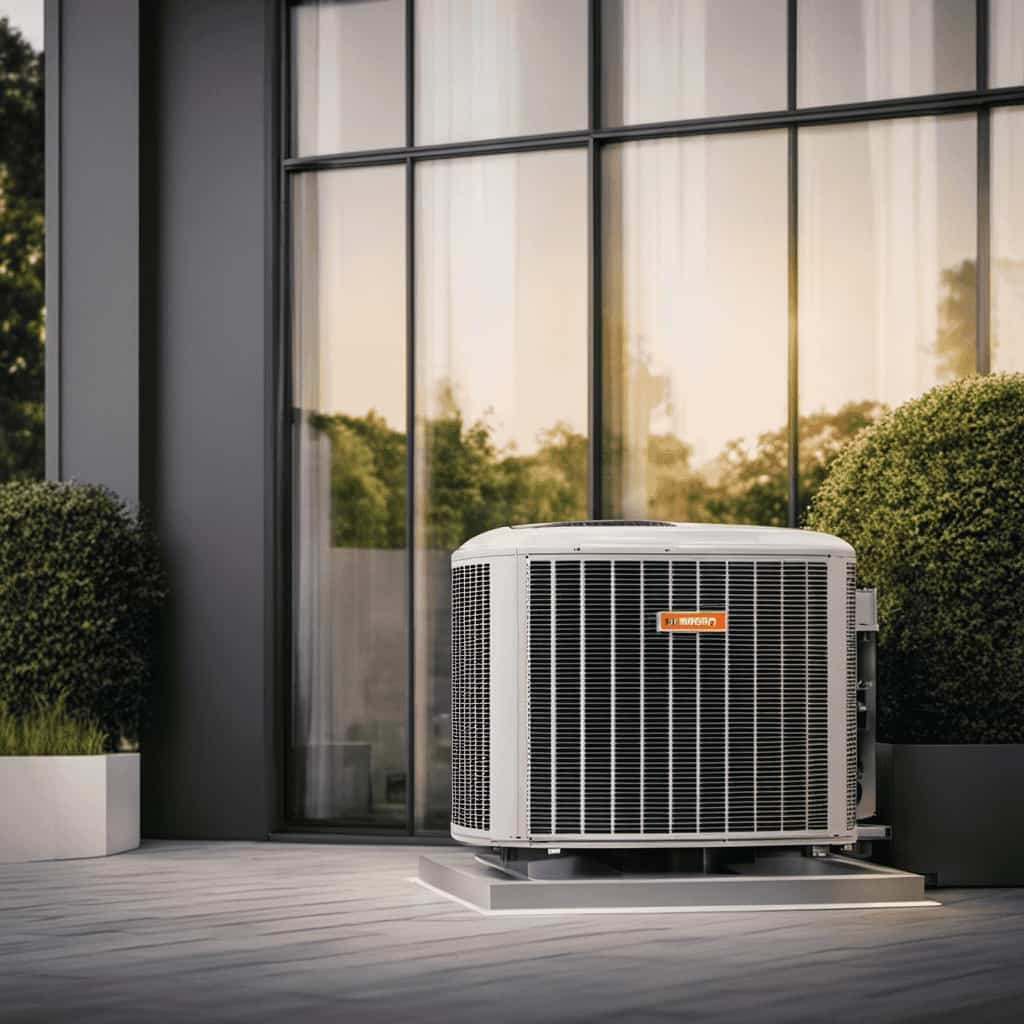
By following these maintenance tips, you can ensure the optimal performance and longevity of your heat pump HVAC system.
Now let’s move on to discussing the common issues that can arise with heat pump HVAC systems.
Common Issues With Heat Pump HVAC Systems
When it comes to heat pump HVAC systems, there are common issues that can affect their performance. One of these issues is defrosting problems in winter, which can cause the system to run less efficiently and lead to increased energy consumption.
Additionally, inadequate heating or cooling can occur if the heat pump isn’t properly sized for the space it’s trying to condition. These issues can impact the overall comfort and efficiency of your home, so it’s important to address them promptly.
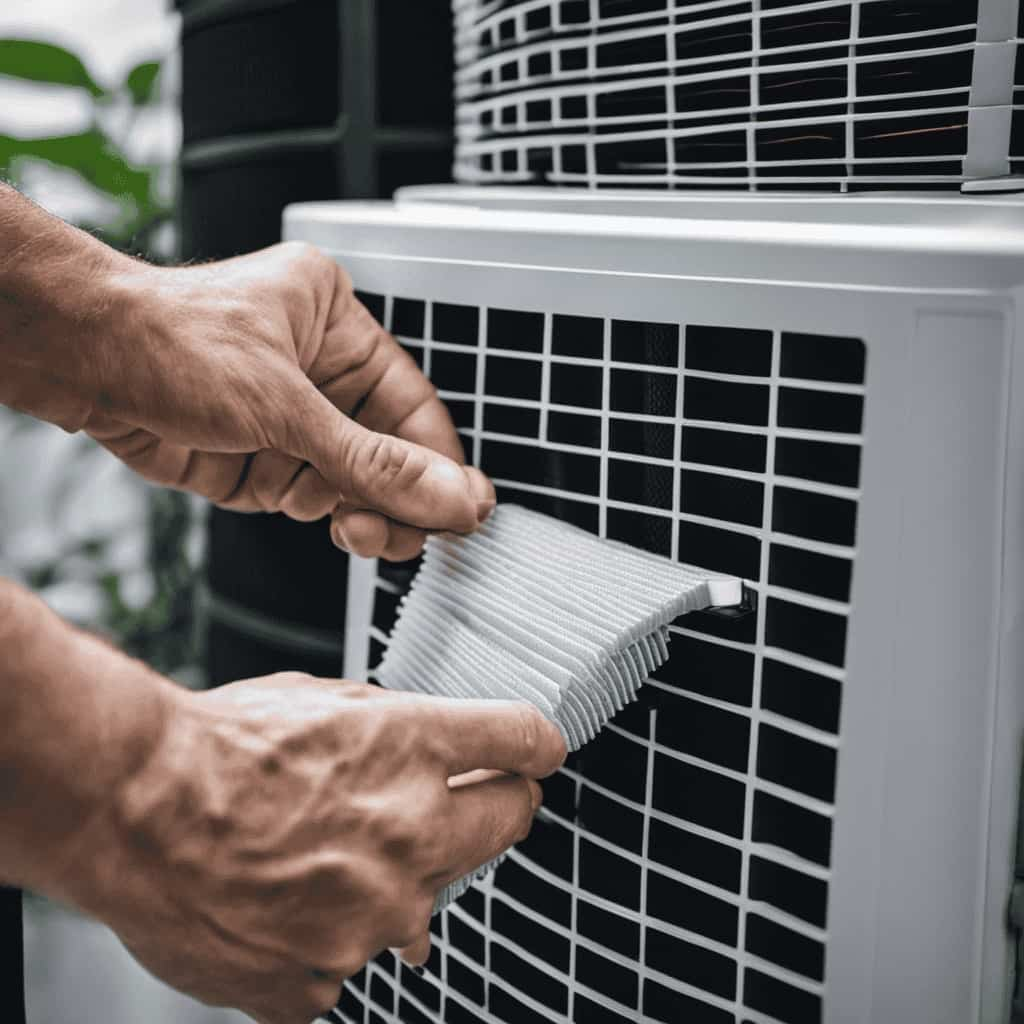
Defrosting Problems in Winter
We often encounter defrosting problems with our heat pump HVAC systems during the winter due to the accumulation of ice and frost on the outdoor unit. When the outdoor unit becomes covered in ice, it hinders the heat exchange process, leading to reduced heating efficiency and potentially causing the system to shut down.
To troubleshoot defrosting issues, here are some common techniques:
Check the defrost control board: Ensure that the defrost control board is functioning properly and initiating defrost cycles when necessary.
Inspect the defrost sensor: Make sure the defrost sensor is positioned correctly and functioning accurately to detect ice buildup.

Clear obstructions: Remove any debris, snow, or ice that may be obstructing the airflow around the outdoor unit.
Verify refrigerant levels: Ensure that the heat pump has the correct amount of refrigerant, as low levels can affect the defrosting process.
Inadequate Heating or Cooling
Let’s address the issue of inadequate heating or cooling that can occur with heat pump HVAC systems.
Inadequate heating or cooling is a common problem that homeowners may encounter with their heat pump systems. There are several factors that can contribute to this issue.

One possible cause is improper sizing of the heat pump unit. If the unit is too small for the space it’s intended to heat or cool, it may struggle to maintain the desired temperature.
Another factor could be a malfunctioning thermostat, which may not accurately communicate the temperature settings to the system.
Additionally, a lack of regular maintenance and cleaning can lead to reduced efficiency and decreased heating or cooling performance.
It’s important to address these issues promptly to ensure optimal comfort and efficiency of your heat pump HVAC system.
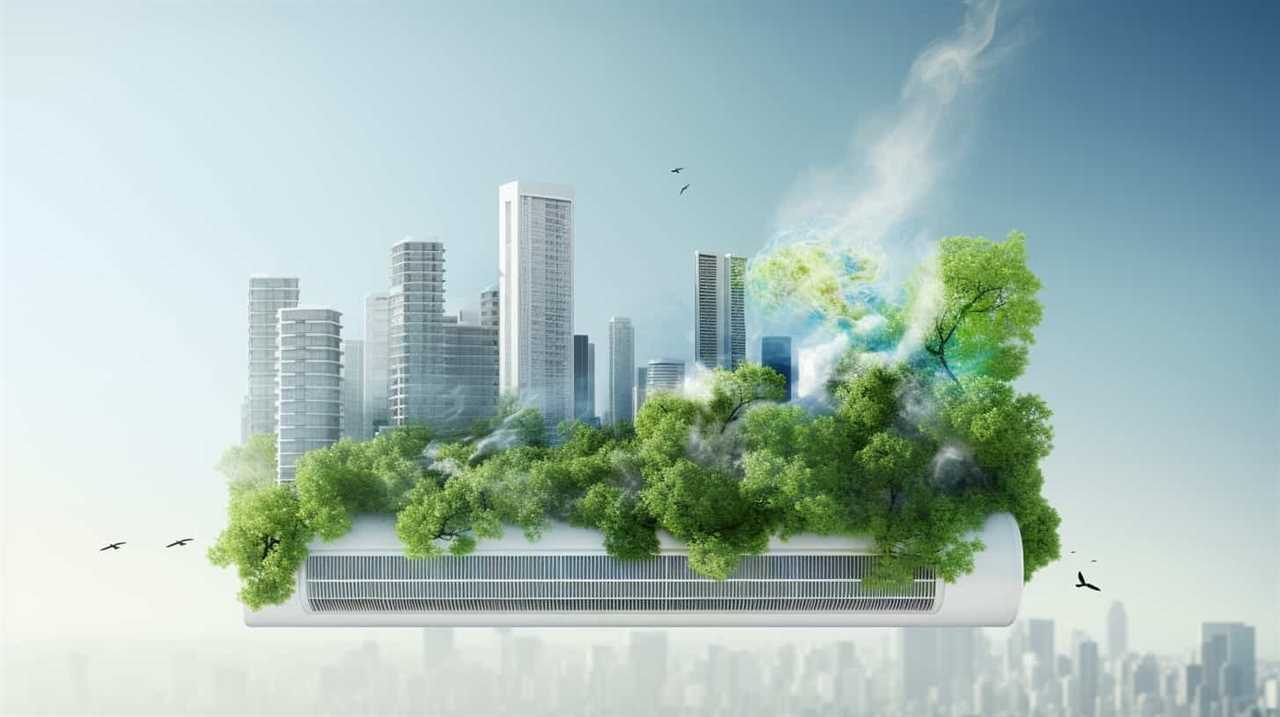
Upgrading to a Heat Pump HVAC System
When considering upgrading to a heat pump HVAC system, there are two key points to consider: cost and efficiency, and environmental benefits.
Heat pump systems are known for their high efficiency, which can lead to significant cost savings on energy bills.
Additionally, heat pumps are more environmentally friendly compared to traditional HVAC systems, as they use renewable energy sources and produce fewer greenhouse gas emissions.
Cost and Efficiency
Upgrading to a heat pump HVAC system can significantly improve both the cost and efficiency of your home’s heating and cooling. Here are four reasons why:
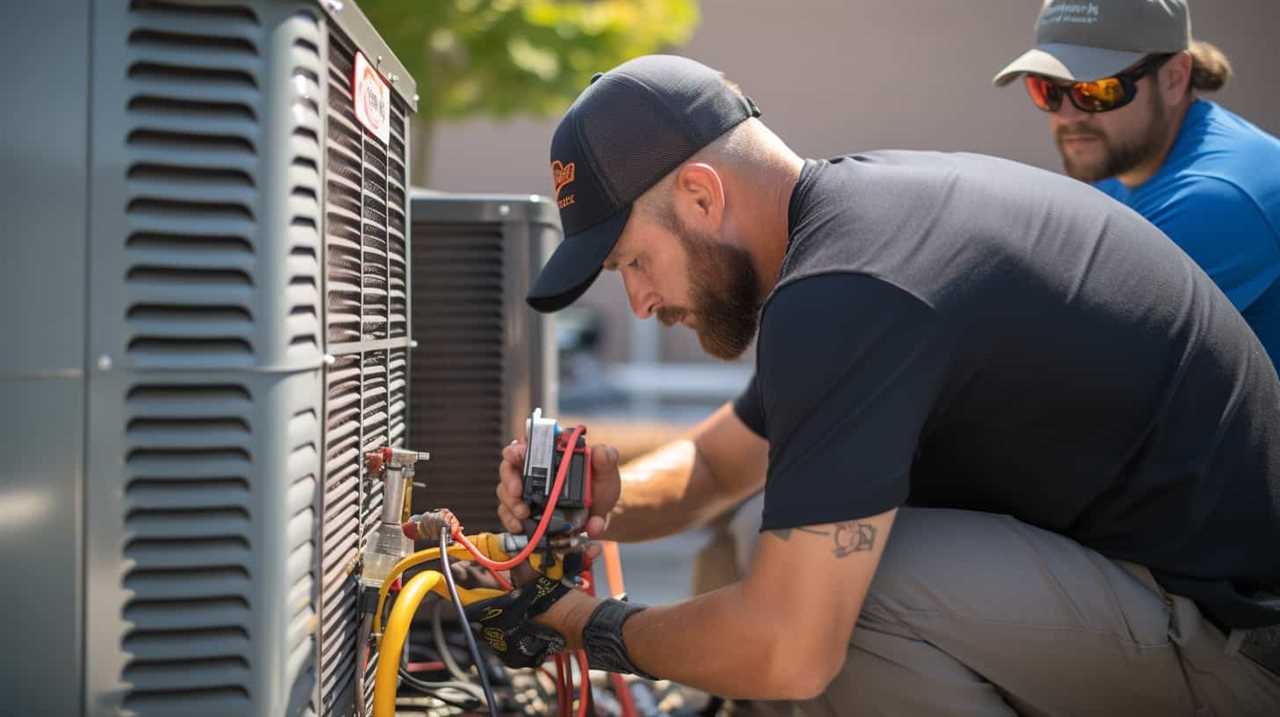
Cost savings: Heat pumps are known for their energy efficiency, which can lead to reduced energy consumption and lower utility bills. By using the heat from the air or ground, heat pumps can provide heat at a fraction of the cost compared to traditional heating systems.
Energy efficiency: Heat pumps transfer heat rather than generate it, making them more energy-efficient than other heating and cooling systems. This not only reduces your carbon footprint but also contributes to a more sustainable and environmentally friendly home.
Dual functionality: Heat pumps can both heat and cool your home, eliminating the need for separate heating and cooling systems. This not only saves space but also simplifies maintenance and reduces overall costs.
Long-term savings: Although the upfront cost of installing a heat pump HVAC system may be higher than traditional systems, the long-term savings in energy costs can make up for it. With proper maintenance and regular servicing, heat pumps can last for many years, providing ongoing cost savings.

Environmental Benefits
One of the key environmental benefits of upgrading to a heat pump HVAC system is the significant reduction in carbon emissions. Heat pump systems operate by transferring heat from one place to another, rather than generating heat by burning fossil fuels. This means that they use less energy and produce fewer greenhouse gas emissions compared to traditional heating and cooling systems.
By harnessing the natural heat in the air, ground, or water, heat pumps act as a renewable energy source, reducing our reliance on non-renewable fossil fuels. This not only helps to mitigate climate change but also improves air quality by reducing the release of pollutants into the atmosphere.
Choosing the Right Heat Pump HVAC System for Your Home
We should consider the various factors that will help us select the most suitable heat pump HVAC system for our home. When choosing a heat pump, it’s important to determine the correct heat pump sizing for your specific needs.
Here are four installation considerations to keep in mind:

Climate: Consider the climate in your area. Heat pumps work best in moderate climates, so if you live in an area with extreme temperatures, additional heating or cooling systems may be necessary.
Insulation: Ensure that your home is properly insulated. Good insulation will help maximize the efficiency of your heat pump and reduce energy consumption.
Ductwork: Check the condition of your existing ductwork. If it’s old or damaged, it may need to be replaced or repaired before installing a heat pump.
Space availability: Consider the space available for installation. Heat pumps require both indoor and outdoor units, so make sure you have enough room for proper installation.
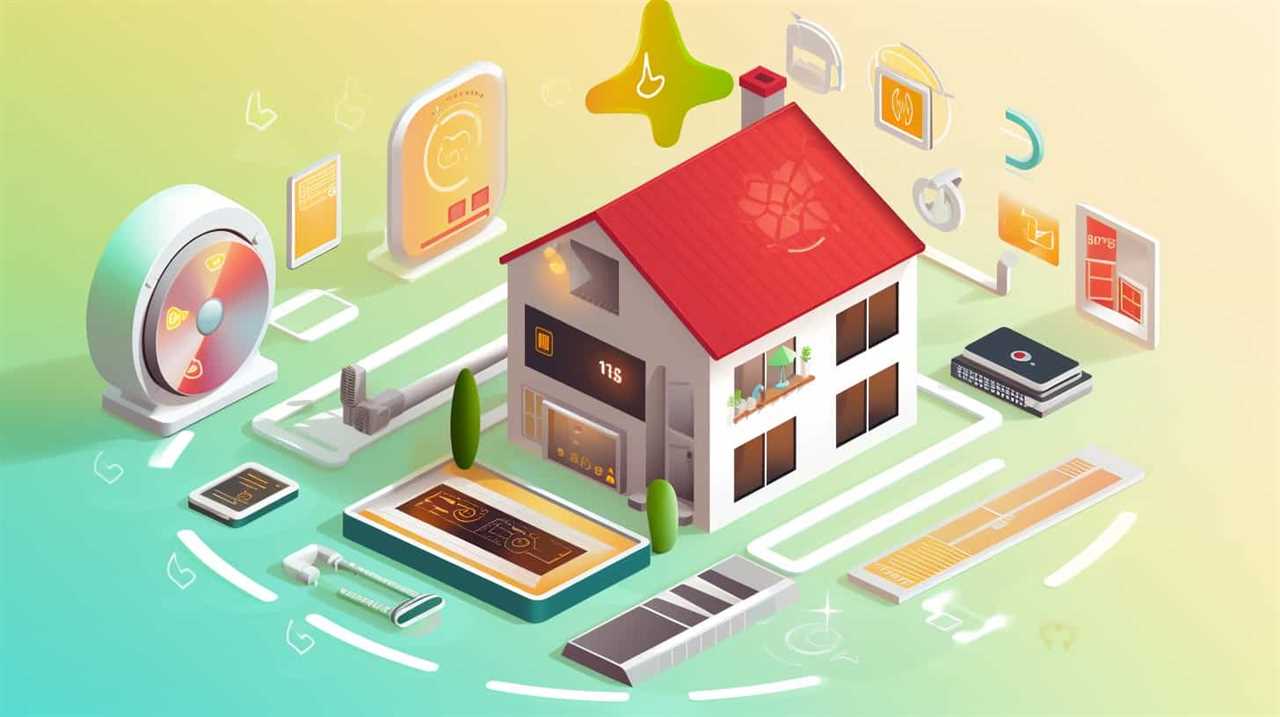
Frequently Asked Questions
Are Heat Pump HVAC Systems Suitable for All Types of Homes?
Heat pump HVAC systems are suitable for most homes, offering energy efficiency and cost savings. However, it’s important to consider factors such as climate, insulation, and existing ductwork to determine the best fit for your specific home.
Can a Heat Pump HVAC System Be Used for Both Heating and Cooling Purposes?
Yes, a heat pump HVAC system can efficiently heat and cool your home. Compared to traditional systems, it offers superior energy efficiency, reducing costs and providing year-round comfort.
How Long Does It Typically Take to Install a Heat Pump HVAC System?
It typically takes about 1-2 days to install a heat pump HVAC system. The installation cost considerations include the complexity of the existing system and the energy efficiency benefits of the new heat pump system.
Are Heat Pump HVAC Systems Noisy?
Heat pump HVAC systems have both pros and cons. While they are known for their energy efficiency, noise can be a concern. However, there are noise reduction techniques available to ensure a quieter operation.
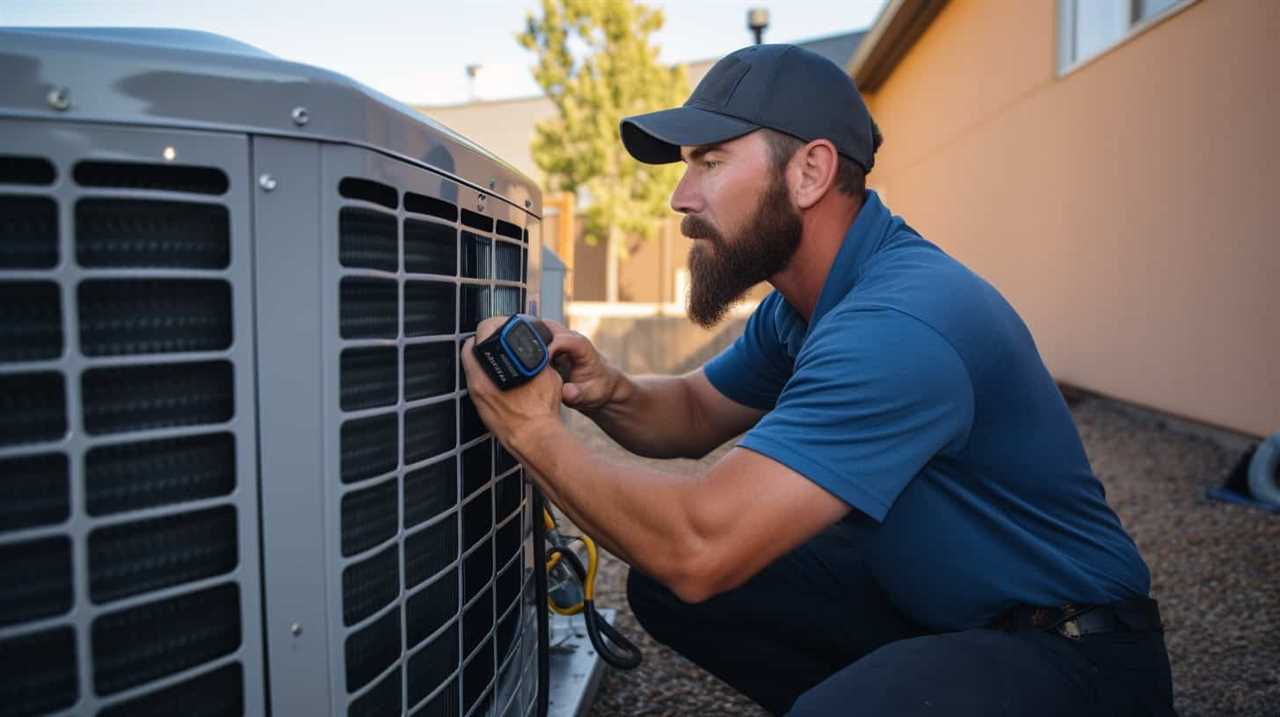
Are There Any Government Incentives or Rebates Available for Installing a Heat Pump HVAC System?
Yes, there are government incentives and rebates available for installing a heat pump HVAC system. These incentives aim to promote energy savings and encourage homeowners to adopt more efficient heating and cooling technologies.
How Can Heat Pump HVAC Systems Save Me Money on My Bills?
Heat pump hvac systems offer an efficient way to heat or cool your home, helping you save on utility bills. By utilizing the outside air to transfer heat, they consume less energy compared to traditional systems. This energy-saving advantage reduces monthly expenses while still providing optimal comfort. Upgrade to heat pump HVAC systems for long-term savings and increased eco-friendliness.
Conclusion
In conclusion, heat pump HVAC systems offer numerous benefits, such as energy efficiency and cost savings. By understanding how these systems work and choosing the right one for your home, you can revolutionize your home comfort.
Regular maintenance is essential to ensure optimal performance, and addressing common issues promptly can prevent major problems.
Upgrade to a heat pump HVAC system and experience the unparalleled comfort and efficiency it provides. Don’t miss out on the opportunity to transform your home’s heating and cooling system.




